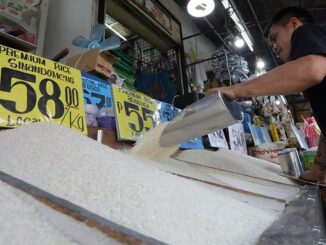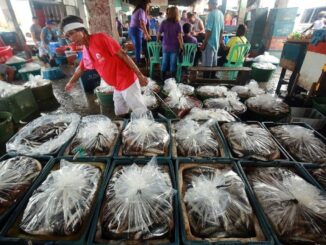
BAGUIO CITY — The provincial government of Ilocos Norte, in collaboration with the Department of Agriculture and the San Joaquin Multi-Purpose Cooperative, on Monday morning opened the World Bank-funded Quality Tomato Production, Consolidation, Storage, and Marketing Enterprise Facility, the first in the province.
The establishment of the facility demonstrates the provincial government’s commitment to enhancing agricultural infrastructure that will benefit local farmers by providing a modern storage solution that helps maintain the quality and extend the shelf life of their produce, thereby increasing their market value and reducing post-harvest losses, said Ilocos Norte Gov. Matthew Manotoc.
Manotoc, Department of Agriculture Regional Director Annie Barres, Provincial Agriculturist Maria Teresa Bacnat, Sarrat town Mayor Remigio Medrano and San Joaquin Multi-Purpose Cooperative Chairman Arsenio Valencia led the inauguration and turnover rites.
The Ilocos Norte governor emphasized the importance of such initiatives in boosting the agricultural sector and supporting the livelihood of farmers in the province.
“Let us ensure that this pioneering, first-of-its-kind cold storage facility in the province becomes a resounding success and something we can all be proud of. Ultimately, it will bring significant benefits to our farmers,” he said.
The cold storage facility is equipped with advanced technology to ensure optimal storage conditions for tomatoes and other perishable goods. It also includes a consolidation area where farmers can bring their produce for sorting, grading and packaging, enhancing the overall quality and marketability of the products.
The P33,464,170.05 worth WB-funded facility was constructed under the Department of Agriculture’s Philippine Rural Development Project (PRDP). It is part of a broader initiative of the provincial government and its partners to strengthen the agricultural value chain, improve food security and promote sustainable farming practices not only in the province but across Region I.





Be the first to comment